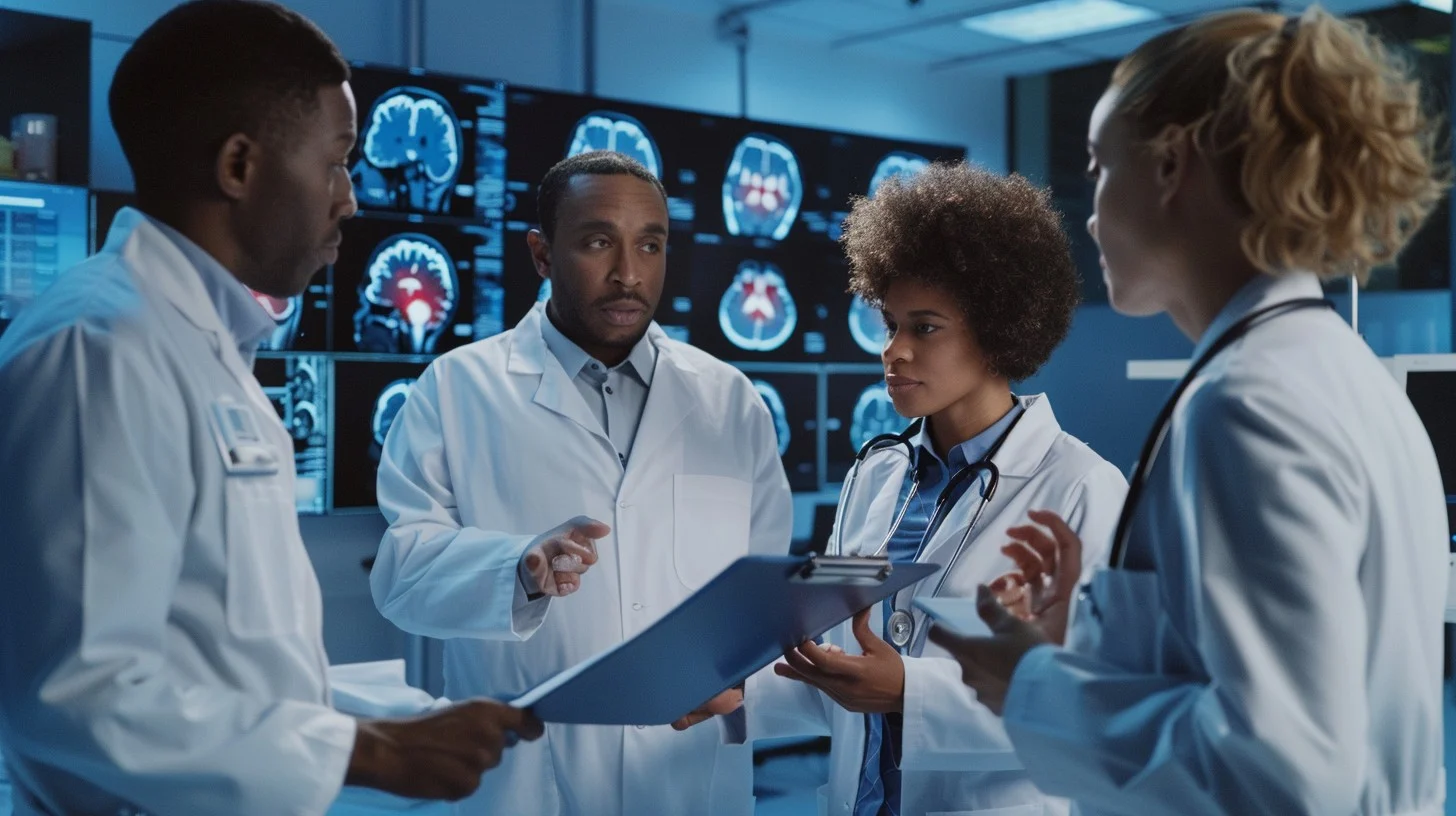Brain surgery often requires the expertise of a skilled brain surgeon working alongside other specialists to provide comprehensive care. This teamwork is a hallmark of modern medicine, helping patients receive a well-rounded treatment plan. Patients undergoing brain surgery are supported by a brain surgeon and a multidisciplinary team through every step, from the initial consultation to recovery.
Brain Surgeon’s Care Team
One of the first steps for a patients getting brain surgery is building a care team. Surgery of the brain involves complexities that require input from multiple disciplines. Typically, a brain surgeon works alongside neurologists, radiologists, and anesthesiologists, combining their expertise to create an individualized treatment plan.
Each specialist brings a different perspective. The neurologist evaluates the patient’s neurological history, providing context for the surgery. Radiologists provide imaging insights to guide the exact positioning and nature of the operation. Meanwhile, anesthesiologists prepare their expertise in making sure patients remain stable and safe during the procedure itself. By coordinating with these specialists early on, the surgeon sets the stage for effective, individualized care.
Emotional Support Services
Patients and their families often face difficult decisions, and collaboration between a brain surgeon and mental health professionals can have a profound impact. Psychologists, counselors, and even patient navigators often join care teams to help individuals work through these challenges. Together, they provide comprehensive support to address both physical and emotional needs.
Mental health support can be valuable during the decision-making process. Receiving a diagnosis requiring brain surgery involves processing significant information. Consulting with a counselor about the procedure or discussing alternative treatment options with a patient advocate can provide clarity. These resources help patients process information, reduce uncertainty, and evaluate their next steps.
Beyond the Operating Room
A brain surgeon’s collaboration doesn’t end in the operating room. Post-surgery care plays a key role in a strong recovery. This part of the process involves physical therapists, occupational therapists, and rehabilitation specialists who support patients in regaining their strength and independence.
Physical therapists provide exercises to strengthen muscles and recover motor skills impacted by surgery. Occupational therapists work on day-to-day tasks and coping mechanisms, helping patients adjust to any new challenges they may face. Adding caregivers and nutritionists to the recovery plan promotes healing by guiding healthy habits that contribute to physical resilience. These specialists work closely with the surgeon, aligning recovery with the patient’s broader health goals.
Speech-language therapy is also a key role in recovery process. Speech therapists work to address communication and swallowing challenges, providing personalized strategies and exercises to improve speech, language, and oral function. A recovery plan that includes speech-language therapy helps patients regain their quality of life.
Patient-Centered Collaboration
Collaboration is the foundation of successful brain surgery. By bringing together specialists, surgeons offer their patients a treatment process that evaluates every aspect of their health and well-being. This approach provides patients with deeper insights into their condition, enabling them to make more informed decisions with greater clarity. Comprehensive care begins with communication, and patients are encouraged to ask questions, seek guidance, and explore their options.

